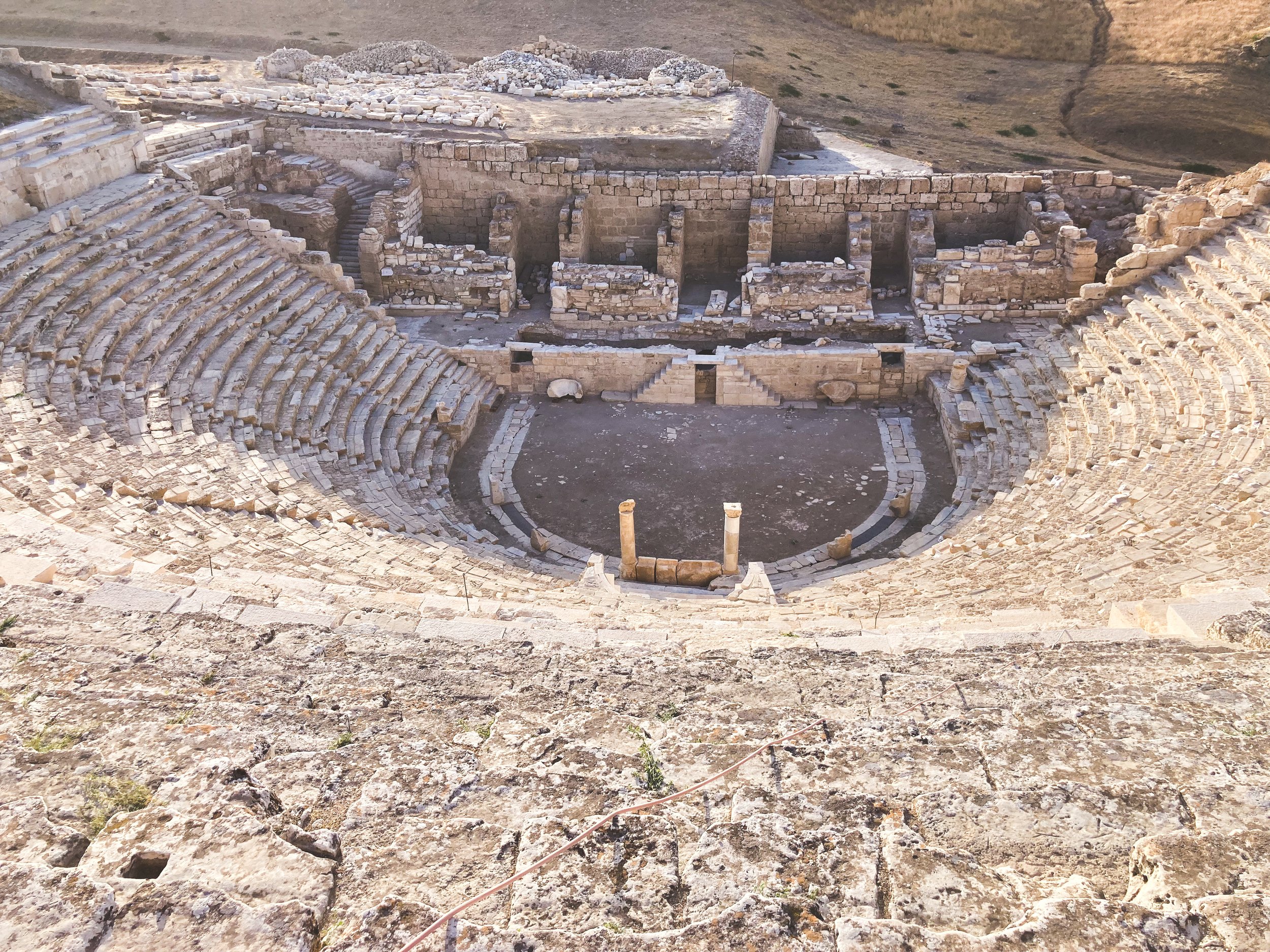Touring Turkey: Part 1 “Paul and the Glory of Rome”
The Theater at Laodicea (Photo by me)
It was the perfect setup, reminiscent of the same setup Rome exploited for hundreds of years.
We walked up a slight rise during a day’s trip to the recently excavated site of Laodicea, once a thriving city in Asia Minor (modern day Turkey) and now a ruin. Archeologists have been working on it for some ten years. They have unearthed enough to reveal the glory of this ancient city.
I was slightly ahead of the group and thus the first to see it. As the others followed me, I heard them exclaim what I was already saying under my breath.
“What is this!”
“Are you kidding me!”
“Incredible!”
“How is this possible?”
“Amazing.”
“I can’t believe what I am seeing.”
We gazed upon a theater that once held upwards of 15,000 people. The seats were marble, the stage massive, the backdrop three stories high, once decorated by sculptures of the gods, goddesses, and famous Romans, including, of course, the emperors.
Such was our typical response to everything we saw during our two weeks in Turkey: a temple, a bath, an archway, a marketplace, a main street, a stadium, a monument, a basilica, a library, and more. We simply ran out of superlatives. We could not find the words to capture the sheer grandeur and greatness of the Roman Empire.
How many times have onlookers said the same thing? How many times have they uttered the same incredulity?
It was exactly what Rome wanted to hear. Rome ruled as much through its glory as it did through its army. The sheer magnitude, magnificence, and majesty of its cities was enough to impress anyone. It certainly impressed us. The emperors would have been amused and pleased.
The apostle Paul and his band of followers preached Christ and planted churches in these cities. They passed through their massive gates, shopped for goods in their marketplaces, and walked down their wide streets. They saw what we saw, with one important difference. The empire was at its peak then, not a heap of ruins as it is now.
Were they as impressed as we were? We have no way of knowing. But it is unlikely that they were. The early Christian attitude toward Rome was unusual. The first followers of Jesus weren’t overwhelmed by Rome’s greatness, as we were, nor were they intimidated by its evil and sworn to defeat it. They were oblivious to it, as if Rome simply didn’t matter in God’s economy, except that it provided a setting in which God would accomplish his redemptive work.
It is true that the New Testament does not speak with great fondness toward Rome. It was, according to the book of Revelation, the “great beast.” But neither does the New Testament pay much attention to it. Considering Rome’s dominance, it does not play a central role in the story of early Christianity, even when Rome persecuted Christians. It served as the backdrop for a different story, one far more important.
Every major city in the Roman Empire boasted an acropolis, most often a hill on which the majority of temples were built. Pergamon is a good example. The acropolis towered over the city as if it was heaven descended to earth. Its height, size, and grandeur reinforced the power of the gods, the authority of the emperors, and the dominance of the state.
The acropolis captured the glory of Rome; Paul’s ministry the glory of the gospel. The two embodied very different views of reality. One intimidated, the other welcomed. One dominated, the other served. One took life through its many sacrifices, the other promised life because of one sacrifice.
Paul knew what he was about, and Rome was irrelevant to it. He served a different king (and a different KIND of king) and lived for a different kingdom (and a different KIND of kingdom). His whole belief system and way of life embodied something new.
Rome had no idea how to respond. How do football players deal with opponents who want to play chess? They can’t bully them into submission. It is two different games altogether.
I think about my response to our current cultural and political situation, which has vexed me to no end. I feel angry and discouraged. I think about it far too often, brooding during the night. Could it be that I am giving it too much power?
What would Paul want to say to me? To us?
First, he would tell us to put first things first. Jesus is Lord; the kingdom of God is ultimate reality. Earthly rulers, parties, and kingdoms come and go. Keep your focus on the kingdom.
Second, he would remind us to live in the right story. The Roman Empire dominated the western world. It no longer does. Perhaps our own country will follow a similar trajectory. In the end it doesn’t matter because the only story that ultimately matters is God’s story.
Finally, he would say, “Get to work!” I think about Paul’s experience. How many times was he jailed, beaten, and driven out of one city after another? Yet he continued in the work of the gospel. He was unrelenting in his commitment to serve God and his kingdom.
“Go,” Jesus commanded. “Make disciples.” That is, followers of Jesus, citizens of his kingdom, and agents of redemption in the world. That command is as relevant today as it was 2000 years ago. If we obey it, we will become as strange and suspect in our own country as Christians were in the Roman Empire, and with the same result, too.

